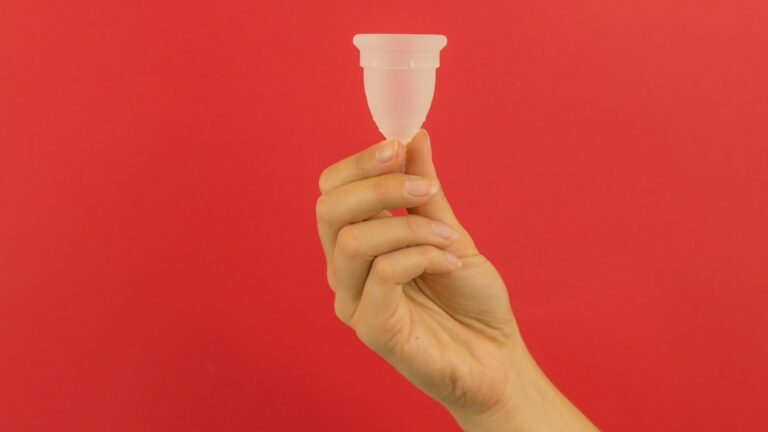If you are sexually active, you may notice changes in your menstrual cycle. Your libido might rise during the follicular phase around ovulation, and then decrease again in the luteal phase.
Orgasms might help speed up the process of starting your period by causing your pelvic floor uterus to contract rhythmically. But sex won’t necessarily make your period come early unless you are already close to the end of your cycle.
1. Pregnancy
Pregnancy can make your period come late because of changes to your hormone levels that prevent the lining of your uterus from being shed. This is why a missed period is one of the first signs of pregnancy. Other early symptoms of pregnancy include bloating, cramps, fatigue and sensitive breasts.
If you are pregnant, it’s important to visit your doctor to discuss a plan for regular checkups and care throughout the course of the pregnancy. It’s also a good idea to use a birth control pill during your pregnancy, as it will help protect against an unwanted pregnancy.
It’s not uncommon for a woman to have a late period after using hormonal birth control for some time. Typically, this is because it takes a month or so for the body to regulate itself after discontinuing hormonal birth control.
Some women experience a delay in their menstrual cycle when they’re on the birth control pill due to a condition called polycystic ovary syndrome (PCOS). PCOS is a common cause of irregular periods, and it can be exacerbated by stress, extreme exercise, certain health conditions, and some foods and medications. A doctor can diagnose PCOS and prescribe medication to treat it. Depending on the severity of the disorder, it’s not unusual for doctors to recommend the use of birth control pills as a treatment.
2. Hormonal Imbalance
There isn’t really any way sex can cause your period to start early or late, except in the event that it causes you to become pregnant (which would definitely be noticeable). It can, however, help a cycle that is already due to start a little bit faster. This is because sex and any other sexual activity that leads to orgasm can trigger uterine contractions.
This happens because of the hormones released during sex and orgasm. Oxytocin, dopamine, and adrenaline, among other chemicals, are released during orgasm, which can make a woman’s uterus contract a bit more than it normally does. These contractions may result in bleeding, but this is usually light and quick to stop.
Similarly, the release of oxytocin, dopamine, and cortisol during stress can also alter a woman’s menstrual cycle, making it longer than usual. This is because these hormones hijack the body’s resources, shunting them away from reproductive hormone production. This is why it’s important to keep track of your symptoms and talk to a doctor if you notice any changes in your menstrual cycle.
When you visit Dr. Morales for an appointment, she will review your medical history and discuss your symptoms with you to arrive at a diagnosis. From there, she’ll recommend a treatment plan to restore hormonal balance and alleviate your menstrual issues. Schedule an appointment today at her clinic in San Antonio, TX!
3. Birth Control Pills
Many forms of birth control use hormones to prevent pregnancy, including oral contraceptives, patches, injections, rings and implantable devices. These hormones help change your uterine lining and cervical mucus to keep sperm from reaching an egg, fertilizing it, and attaching to the uterus. There are different types of hormonal birth control methods, and the best one for you depends on your body, health history, preferences and sex life.
When you take the pill, you may start your period earlier or later than normal. This is because the pill stops or delays an egg from being released and also changes your uterine lining. You can start a pill pack at any time of your menstrual cycle, but the recommendation is that you begin on the first day of your period (called “quick start”). If you choose to start on another date, make sure to use backup contraception like condoms for the first five days.
You can also take the morning-after pill (levonorgestrel or ulipristal acetate) as an emergency form of birth control. These pills, which are only intended for single, unprotected sex, stop or delay an egg from being released and also change the uterine lining to prevent sperm from reaching the egg and fertilizing it. They are up to 99.9% effective when taken correctly, but don’t protect you from sexually transmitted infections.
4. Irregular Cycles
Irregular cycles are called oligomenorrhea, and they can be caused by changes in hormone levels (estrogen, progesterone and follicle-stimulating hormone). If these change too much, it can throw off how long your period lasts. Irregular periods may also be a sign of certain health conditions, like polycystic ovary syndrome or endometriosis.
If you have a few irregular periods in a row, it’s not usually cause for concern, especially if you’re using birth control and aren’t close to menopause. However, if you’re not sure what’s causing your abnormal cycle, you should talk to a doctor.
Having sex during your period won’t make it longer, but it could affect how much you bleed. Some people claim that sex while on their period helps ease cramps because orgasm releases pain-reducing chemicals into the body.
While it’s not a guarantee, some women have reported that having sex on their period boosts their sex drive. This might be because having sex while on your period can provide extra lubrication, which can lead to more pleasure and less mess.
But remember, even if you’re feeling extra hot and ready to have sex, it’s always important to use protection. If you’re unprotected, you could still get a sexually transmitted disease or become pregnant. That’s why it’s best to stick to oral sex and use a condom for intravaginal sex.
See Also:



